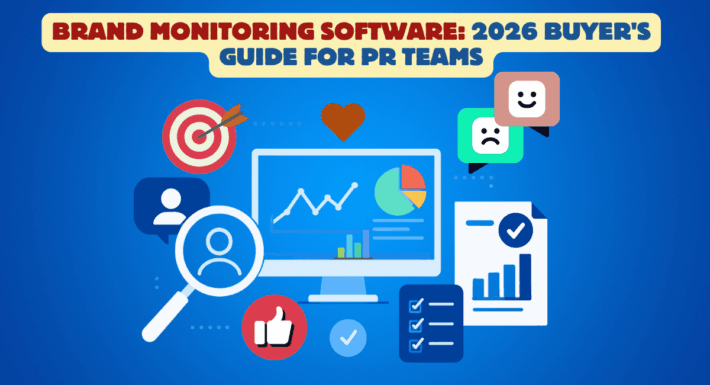Top Pharma News in February 2024

In this edition of our pharma newsletter, we dive into a series of groundbreaking developments reshaping the landscape of healthcare and technology. With government actions poised to enhance drug affordability and accessibility and technological innovations pushing the boundaries of medical research and patient interaction, the healthcare sector is experiencing rapid advancements. These shifts elicit a spectrum of responses, from hopeful enthusiasm to ethical debates, underscoring the intricate balance between policy, pioneering breakthroughs, and public perception. Amidst this evolution, Fullintel Hub stands as your essential informant, delivering sharp analysis and accessible data for industry understanding.
Groundbreaking Neuralink Implant, Medicare Negotiations, and FDA’s AI Tool Approval Lead Healthcare News
Recent headlines feature Neuralink’s pioneering human brain chip implant, the Biden administration’s initiation of Medicare drug price negotiations, and the FDA’s approval of Deliberate AI’s mental health assessment tool, merging cutting-edge technology with significant healthcare policy advancements.
Neuralink’s debut human brain chip implant has stirred excitement for its potential to treat various conditions, despite ethical concerns related to animal testing. The initiation of drug price negotiations by Medicare promises significant savings, although it faces opposition and lawsuits from the industry. The FDA’s approval of Deliberate AI’s mental health assessment tool represents a positive step towards integrating artificial intelligence in healthcare. These developments signal a transformative era in both neurotechnology and healthcare, balancing groundbreaking potential against ethical considerations. Together, these topics account for 7% of overall pharmaceutical coverage.
A Break-Down of Recent Trending Stories:
Neuralink Achieves Milestone with First Human Brain Chip Implant
Elon Musk’s Neuralink recently achieved a significant milestone by implanting its first brain chip, named “Telepathy,” into a human subject. This landmark achievement represents a major leap forward in neurotechnology, aiming to enable individuals to control devices through thought. The implant has successfully allowed a patient to control a computer mouse with their mind, sparking both anticipation and scrutiny. The positive sentiment revolves around the technology’s potential to restore lost functions and enhance human capabilities. Musk’s ambition to treat conditions such as obesity, autism, depression, and schizophrenia has attracted notable attention. However, Neuralink has also received criticism and controversy, particularly regarding its safety protocols and the ethical treatment of animals during testing phases. Reports of expedited experiments resulting in the deaths of 1,500 animals have ignited adverse reactions. Despite these concerns, the breakthrough has generated neutral curiosity about the future possibilities of brain-computer interfaces. Neuralink’s swift transition from FDA approval to human trials highlights the rapid progress in the field. Nonetheless, public sentiment is predominantly negative, with a majority expressing anger. This is due to concerns over the technology’s ethical implications and the potential long-term impact on human health and society. Musk’s initial Twitter announcement on January 30 achieved a trending score of 5. A subsequent update on the patient’s progress on February 20 further captured public interest, illustrating the widespread debate and anticipation surrounding the technology.
Medicare Kicks Off Historic Drug Price Negotiations with Biden Administration
The initiation of Medicare drug price negotiations by the Biden administration, a key feature of the Inflation Reduction Act, has set in motion a potentially transformative healthcare policy change aimed at reducing the financial burden of prescription drugs for Medicare beneficiaries. The kickoff of these negotiations, which began with the government sending initial pricing proposals to drug manufacturers for 10 high-cost drugs, is met with a multifaceted response. There’s a positive outlook from healthcare advocates and patients, who anticipate significant cost reductions, potentially saving Medicare an estimated $100 billion over the next decade and capping out-of-pocket expenses. The pharmaceutical industry has countered with lawsuits, voicing concerns over the potential impact on profits and the future of medical innovation. The social sentiment reflects this dichotomy, with many expressing hope for more affordable healthcare while being wary of the consequences on drug availability and the progress of medical research. These negotiations are not merely current events but pivotal moments shaping the future of healthcare policy and economic strategy. The results of these negotiations, with new drug prices to be announced by September 1, 2024, and implementation slated for 2026, represent a critical juncture in healthcare policy and economic planning. This development has triggered a surge in social engagement, surpassing even the top trending stories, as it touches on the vital intersection of healthcare affordability, policy, and innovation.
FDA’s ISTAND Program Welcomes First AI-Based Tool for Mental Health from Deliberate AI
The FDA’s endorsement of Deliberate AI’s artificial intelligence-powered mental health assessment tool for the Innovative Science and Technology Approaches for New Drugs (ISTAND) program marks a significant advancement in mental health diagnostics. This milestone, a first since ISTAND’s launch in 2020 and the beginning of application submissions in 2022, underscores the FDA’s dedication to promoting groundbreaking tools in drug development. Deliberate AI’s product, AI-COA, is at the forefront of digital health innovation, employing multimodal behavioral signal processing and machine learning to quantitatively evaluate symptoms of anxiety and depression. The reception to this development is highly positive, focusing on AI-COA’s potential to improve the precision and reliability of clinical trials by offering an unbiased method of assessment. This could lead to smaller and shorter trials. The neutral view appreciates this as a progressive stride in the evolution of drug development tools, consistent with the FDA’s goals to refine drug evaluation processes. The social media sentiment towards the FDA’s approval of Deliberate AI’s tool is exceptionally positive, with 90% of the reactions being “wow” and “love,” indicating strong support for the advancements in mental health evaluations and the integration of AI in healthcare practices. The announcement on January 26 captures the peak of public interest.




